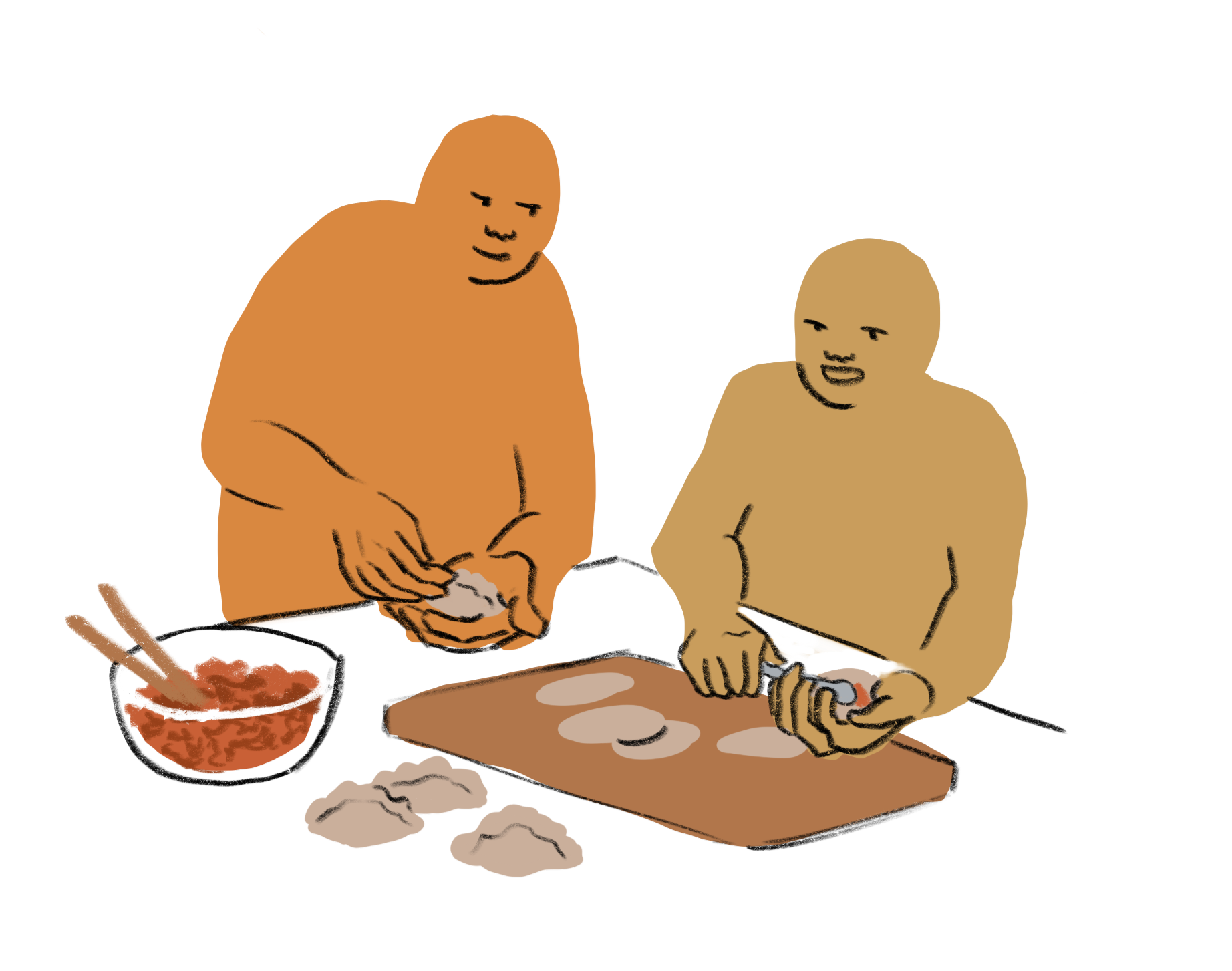Thursday, April 24
From Korea to Ohio: Celebrating Family Across the World
Sophie Bilanin '26 in Features | January 13, 2023

Lawrenceville’s diverse student body and individuals’ unique perspectives are one of the best aspects of our community; and with this variety of backgrounds comes a variety of unique ways to celebrate the winter holidays. After speaking with an array of students in the Dawes House, it has become apparent that whether it is rooted in culture and religion or a small but meaningful family tradition, every kind of celebration of the winter holidays is important and interesting.
Sofia Montenecourt ’26 is a Russian Orthodox student from Moscow, Russia. When discussing how she spends her winter break in Russia, she explained, “It only lasts from December 31 to January 9.” During this time, “the temperature can drop as low as -50° C and is often followed by “up to 10 feet of snow.” In Russia, Christians celebrate Christmas and the New Year on January 7 instead of December 25 because the country follows the original dates from the Julian calendar, rather than those of the contemporary Gregorian calendar. At midnight on this day, tradition holds that Father Frost and his helper, the Snow Maiden, put presents for well-mannered children under the New Year’s tree. The Snow Maiden is Father Frost’s granddaughter, whose origins can be traced back to a Russian fairy tale about a girl made from ice named Snegurochka.
Emily Lee ’26, on the other hand, describes how her family, along with many other Korean families, celebrates the holidays through gift-giving and personal customs. Lee explained, “I meet up with some close friends on Christmas Eve to eat dinner at a local restaurant [in Seoul]. Then, we walk down the main city street together and appreciate the holiday atmosphere of all the decorations.” Her family, however, has its own annual tradition of traveling to Vivaldi Park, a ski resort around two hours away from Seoul, to spend the first week of winter break skiing.
Simi Rath ’26 is a day student from Princeton, New Jersey. Her family is Hindu and celebrates Christmas. They follow the common practices of getting a tree, giving gifts, and putting up decorations, but they don’t view the holiday as a religious practice. Instead, they see Christmas as an excuse “to be thankful for friends and family through gift-giving and quality time,” according to Rath.
Stephanie Schloss ’26, a boarder from Shaker Heights, Ohio, shared her family’s custom of celebrating Christmas on both December 25 and 26. She described her “extension of the holiday spirit…now that I’m away at school, going home is extra special. No matter your religion, holidays are a time for families to gather and bond, and we like to have as much of that time as we can.” This is notably true for Schloss’s family, because while she is at Lawrenceville, her older brother is in college, so the time they can spend together is especially limited and thus important.
These are just some of the many ways the current residents of the Dawes House spend their holidays. After learning about each of these distinct celebrations, it seems obvious that no matter a person’s religious beliefs or where they call home, the holiday season is meant for celebration and spending time with the people considered family. That is the time that everyone at Lawrenceville understands is the best gift of them all.
Related Articles
- A Sweet Return: Melba Reopens with New Flavors and Community Spirit Ella Song ’27
- The Clock’s Ticking: A Rush to Sort Out Scheduling Conflicts Bella Wu ’28
- Debunking the Dining Hall Debate: Is Lawrenceville’s Dining Really That Bad? Isabelle Lee ’27
- Senior Profile: Sophie Cheng ’25 Katherine Qiu ’27
- Dear Pearl: The Reveal! Pearl ... and Riley McKibben ’25
Recent Articles
- Announcing: Valedictorian, Aurelian Speakers, and Faculty Speaker Sophie Liu ’27
- Senior Profile: Sophie Cheng ’25 Katherine Qiu ’27
- Debunking the Dining Hall Debate: Is Lawrenceville’s Dining Really That Bad? Isabelle Lee ’27
- Welcoming Our New VPs for 2025-2026 Sophie Liu ’27
- A Sweet Return: Melba Reopens with New Flavors and Community Spirit Ella Song ’27